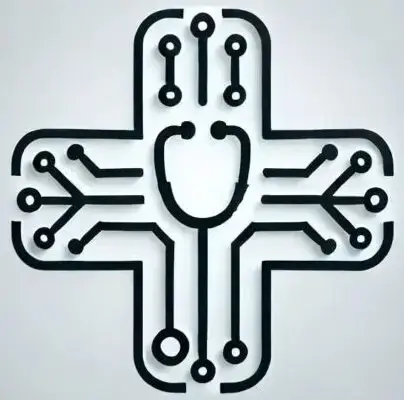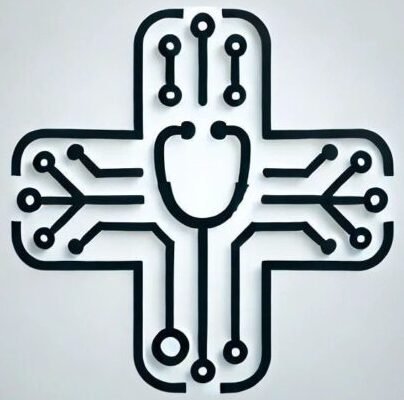The concern about Mental health has become an important issue on a global scale. Millions suffer from mental disorders, such as anxiety and depression. As a result, there has been a surge in the use of mental health technology – a category that includes mental health apps.
But how successful are these apps?
Can they be trusted as a form of mental health treatment?
Addressing such questions is essential and this article This article at TechAi MD written by physcian addresses the impact, myths, facts and the future of mental health applications swayed by research based documents

TechAiMD offers you with non-biased information; we are not advertising any app through this article; all opinions are the physician’s personal views.
Introduction to Mental Health Apps
Mental Health Apps-What Are They?
Easy communication with mental health specialists, therapy, self-help, communication and mood tracking are several of the many features that mental health specialists seek to add to their applications.
They claim that it is easy to use, inexpensive and that care is available to everyone. However, there has been a lot of discussion about their effectiveness, as well as their ethical implications.

There is a reliance on these digital solutions and as such Statista reports that the global mental health app market was valued at 4.2 billion in 2020 with projections of 17.5 billion by 2030.
the impact, myths, facts, and future potential of mental health apps, supplemented by research-based references.
Types of Mental Health Apps
Mental health apps are classified into multiple types:
1. Meditation and Mindfulness Apps: For stress reduction and mindfulness practice (e.g., Calm, Headspace).
2. Cognitive Behavioral Therapy (CBT) Apps: These apps focus on CBT strategies for anxiety and depression
for example, MoodMission and WoeBot
3. Mood Tracking Apps: These apps are designed to assist users monitor their mood patterns for example, Daylio
4. Crisis Support Apps: Provide urgent assistance to persons in crisis
e.g., TalkLife, BetterHelp.
5. Peer Support Apps: Allow users to share their experiences and seek guidance from like-minded others.
Effectiveness and Ethical Considerations
According to the American Psychological Association, dCBT apps are interventions that can be effectively used to address cases of mild to moderate depression, especially when combined with professional help.
Woebot is one example of an app that employs AI-driven chatbots and has shown the potential to users and reduction of symptoms of depression.Nevertheless, there are several factors that affects the potency of mental health apps:
1. The standard of the material included within the app
2. The methodology on which it is based validated by science
3. The engagement and adherence level of the users of the app
Ethic Issues
Despite the benefits that these applications have, there is a question of concern for these applications when it comes to:
1. Protection of Data and Information: Many applications seek and store information that can be classified as sensitive, but take no active measures to protect this information. A report by Mozilla, during 2022, found that 28 out of the 32 mental health applications reviewed failed to provide appropriate privacy settings.
2. Absence of control: Mental health applications are in most cases used without regulation as compared to health systems, which can lead to spread of dormant or detrimental information.
3. Accessibility: There is a possibility that app(s) that claim to be easily accessible may target the wrong audience for instance the older generation or marginalized groups through no fault of their own because of low literacy levels or little to no access to technology.
4. Dependence on AI: This type of application relies heavily on AI software, more specifically within chatbox forms which are rather impersonal and may lack emotion and understanding.
Myth vs Fact – Mental Health Apps
Below is a table highlighting common myths and corresponding facts about mental health apps
| Myths | Facts |
| Apps for mental health can be used instead of traditional therapy. | Apps are not intended to substitute professional therapy. |
| All mental health applications have been clinically tested. | Only a few apps have undergone significant scientific assessment. |
| Mental health applications are always private. | Some apps capture and save user data, which raises privacy concerns. |
| Apps function same for everyone. | Individual needs and mental health difficulties influence the effectiveness of treatment. |
| Free apps provide the same level of quality as premium ones. . | Paid apps frequently provide additional features and better customer service. |
Reference- Mental Health Apps
Potential and Pitfalls of Mobile Mental Health Apps in Traditional Treatment: An Umbrella Review
https://pmc.ncbi.nlm.nih.gov/articles/PMC9505389/
1. Woebot: A 2020 study published in JMIR mHealth and uHealth discovered that Woebot effectively reduced depressive symptoms in college students after just two weeks of use.
https://mhealth.jmir.org/2020/5/e17458
2. Headspace: A randomised controlled experiment published in The Journal of Behavioural Medicine found that using Headspace for 10 days decreased stress by 14%.
https://www.headspace.com/science/meditation-research
3. MoodPath: A 2021 study in Digital Interactions found that MoodPath’s methodical self-monitoring increased user awareness of depressed symptoms and facilitated expert consultations
https://mhealth.jmir.org/2021/10/e26712
Future of Mental Health Apps
The future of mental health apps looks promising, with advancements shown in the following areas:

1. AI-powered applications are evolving to offer experiences which are more interactive and targeted. There are even predictive algorithms that might be able to understand if the user is sad and offer help.
Also, apps which will definitely get better at understanding user preferences and moods.
2. Psychiantists are integrating their applications with smartwatches in order to get monitoring of heart rate, sleep consciousness and more on what the user is doing while using the application.
3. Telehealth apps such as BetterHelp and Talkspace already connect users to certified therapist. Future deployments might add self-service therapy aids into live sessions.
4. Augmented and Virtual settings might bring dramatic changes in clinical sessions that include exposing treatments for people suffering from anxiety and phobias.
5. Governments and healthcare providing organizations are probably going to create stricter policies that mental health based apps will have a proper way to protect data and have an effective treatment course
My Opinion
Without a doubt the revolutionize of mental health apps has changed how we view mental health, making these resources accessible to everyone regardless of the war or socioeconomic activity the individual is involved in.
Nevertheless, I don’t think these apps are the cure to any mental health issues and should be used as an adjunct to treatment as opposed to a main feature.
There are ethical issues for sure – To ensure that mental health apps serve their users, ethical issues such as privacy, regulation, and equitable access must be addressed. As technology advances, mental health applications are set to play an increasingly important role in shaping the development of mental health care.
Individuals can use the possible benefits of these apps to improve their psychological well-being while minimising any risks by remaining aware and careful.
Mental Health Apps
- mental health apps safe to use?While many applications are secure, users should select those with transparent privacy policies and evidence-based procedures. Always verify app reviews and certificates for authentication.
- Can I use mental health apps without consulting a therapist?Apps can be useful for minor issues, but they will be not a substitute for professional diagnosis or treatment.
- How do I know if an app is reliable?Look for apps that have peer-reviewed research to back up their promises or that are suggested by recognized mental health groups.
- Are these apps suitable for children?Some apps are aimed specifically at children, however parental monitoring is required to ensure safety and compatibility.
- Do free apps work as well as paid ones?
While free apps might be useful, paid versions frequently include extra features, improved security, along with more complete assistance.





